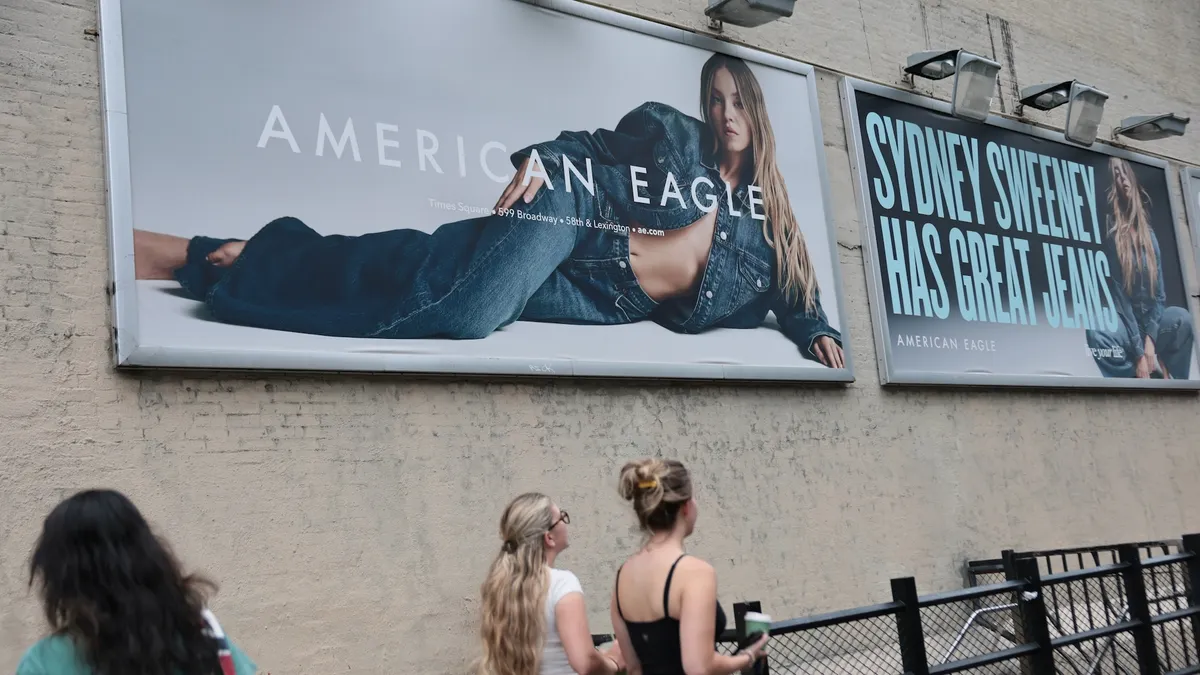With the shift to online accelerated, the last few months have seen renewed interest and success in the DTC model, whether it be digitally native players like Allbirds or traditional retailers like Nike shifting more of their business in that direction.
An unexpected entrant looking to capitalize on that wave, 70-year-old intimates manufacturer Gelmart International on Tuesday launched a brand incubation and venture arm, FullStride Ventures, as an alternative to traditional VC funding. The move comes after Gelmart worked to incubate DTC brand Lively as a co-founding investor and manufacturing partner.
From here on out, FullStride Ventures will incubate its own brands, and provide "investment and turnkey supply chain solutions and product development" to startups, according to an emailed press release. Gelmart defines itself as the "leading intimates manufacturer in the U.S." and "the largest private label player in the industry," with work that includes creating products for retail partners like Target and Walmart.
As far as retail investment goes, DTC brands are the talk of the town, despite the fact that not many DTC brands get a substantial amount of funding compared to other retail businesses. The pandemic has, in many ways, buoyed DTC brands as consumers turn to online shopping for most of their needs, expanding the possible customer base for mostly online brands. That makes it a convenient time for Gelmart to invest and incubate more DTC brands.
Through its new venture arm, the firm is focused on brands that fit within its wheelhouse, and key consumer trends are also top of mind. Sustainability and a "health is wealth" mindset from brands are two of the things the company is looking for, Yossi Nasser, FullStride Ventures founding partner and Gelmart CEO, said during a press briefing.
"I think the way we look at it is things that are adjacent and categories that we already produce," Nasser said of the types of brands FullStride is looking to invest in. "If you take underwear and you take loungewear and basics — we have the potential to look into categories such as swim to socks to thermals. I would say outerwear is probably not within the wheelhouse that we would want to be looking at when we look at FullStride, but a lot of the adjacent categories that are moated around the underwear categories are things that we would be looking at."
The success Gelmart had with Lively was the catalyst for creating FullStride Ventures, and Nasser is hopeful that the company can offer new DTC brands help with supply chain, manufacturing and brand-building, as well as even set them up with potential retail partners. Reflecting that origin story, Lively's founder and CEO Michelle Cordeiro Grant will be a strategic adviser to FullStride Ventures.
She noted in a press briefing that there's a chance for more DTC brands to take what she calls "strategic" funding rather than traditional fundraising. In other words: funding that comes with support in key areas, like supply chain.
"When I met Yossi, I knew that I needed supply chain. I knew, having worked in bras, that there's 25 components at minimum for a really good product," Grant said, adding that Gelmart built Lively a factory to fit its specific needs. (Lively's supply chain was designed to handle short runs so the brand could monitor consumer reaction in real time, according to Gelmart.)
"He saw Casper, he saw Warby, he saw Harry's, and when him and I met, he said, 'We could do that. We could probably create our own DTC brand,'" Grant said of her first meeting with Nasser. "'I'm going to bring supply chain, you bring brand.' And all of these other back-end opportunities came together."
FullStride, which will focus on becoming co-founding lead investors and lead manufacturing partners at Seed and Series A investment stages, touts its vertical supply chain, retailer partnerships and manufacturing perspective as differentiators from the traditional VC model. However, the idea of manufacturers getting involved in incubating and investing in DTC brands is not necessarily new, according to Moiz Ali, the founder and former CEO of DTC personal care brand Native.
"Companies like Harrys, Unilever, and P&G have always had their own manufacturing facilities and brands. Usually however, the brand comes first and the manufacturing capability second. Now, manufacturers are starting to think about creating brands themselves," Ali said via email. "This is definitely becoming more common — at least three manufacturers I can think of have created their own line of direct-to-consumer businesses. It is a different skill set though, and most of these businesses are still only modestly successful."
Ali added that companies trying to handle both business-to-business and business-to-consumer arms, like Gelmart, will also have to find the right balance of resources so the original business isn't neglected and the new brands can flourish.
So far, FullStride is looking to do that by leaning into the categories it knows best. Lively fell into Gelmart's core intimates category, while DTC brand Wknd Nation, a FullStride investment that's launching this month, is focused on "style wear," a category that includes comfortable basics that can be styled up or down. Another brand in the pipeline for this fall is centered on "developing elevated, sustainable and affordable basics," according to the release.
"When we look at the consumer today, and market trends, we see increased importance of comfort, durability, sustainability, and value, and these brands deliver on these attributes," Nasser said in a statement.
Much like the increase to e-commerce, the global health crisis has also only served to accelerate the movement of comfort clothing, as consumers find themselves with little need for officewear or other apparel categories. FullStride's investments are therefore starting from high ground, whether or not they are ultimately successful.
Strategically choosing founders with a specific skill set is also a part of FullStride's plan to build successful DTC brands. The company relies on founders to bring a strong merchant background, with an understanding of the product and the consumer.
"For us, that's a very essential part," Nasser said.
























